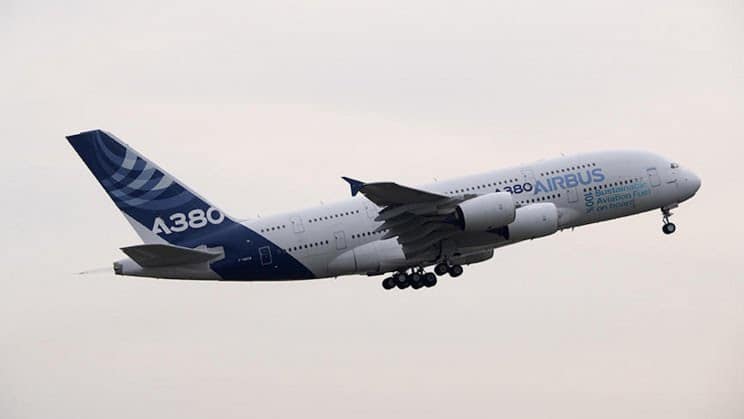Flying to Greece in the future might be possible using cooking oil for fuel as it turns out it could power the world's largest passenger airliner.
Airbus performed the first-ever A380 flight powered by 100 percent Sustainable Aviation Fuel (SAF) derived mainly from cooking oil and other waste fats, a press statement reveals.
SAF: Powering a giant of the skies with cooking oil
The SAF-powered A380, given the title MSN 1, took off from Blagnac Airport in Toulouse, France at 08:43 local time on Friday, March 25. The aircraft flew for approximately three hours, powered by a Rolls-Royce Trent 900 engine running on sustainable fuel.
A second flight then took place on Tuesday, March 29 aimed at testing take-off and landing using sustainable fuels. This was the third Airbus aircraft type to fly on 100 percent SAF over the last year, and it is by far the largest. In March 2021, Airbus flew an Airbus A350 on sustainable fuel, followed by an SAF-powered A319neo single-aisle aircraft in October 2021.
For this month's first A380 flight, Airbus used 27 tons of unblended SAF that was provided by petroleum firm TotalEnergies and comprised mainly of cooking oil and other waste fats.
Achieving net-zero carbon emissions by 2050
SAF has shown great potential for cutting emissions for the aviation industry, which accounts for roughly 2 percent of all global emissions annually.
Other companies, including Rolls-Royce, are running tests with a view to also powering their engines using the sustainable fuel alternative in the future.
All Airbus aircraft are already certified to fly using up to 50 percent SAF mixed with kerosene, but the company aims to take things a step further by earning 100 percent SAF flight certification before 2030.
"Increasing the use of SAF remains a key pathway to achieving the industry’s ambition of net-zero carbon emissions by 2050," Airbus explains in its statement.
The company also points to the Waypoint 2050 report, which indicates that SAF could contribute to up to 71 percent of required carbon reductions.
In 2019, Airbus announced it was halting production of the A380, the world's largest aircraft, citing low demand and high production costs. Many of the aircraft remain in operation, however, and Airbus has also found they make an ideal testbed for sustainable technologies, due to their spacious interior.
In February, for example, the aviation giant also announced it aims to equip the same aircraft used for this month's SAF test flights to test hydrogen engines by 2026.


